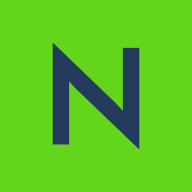

Nasuni and NetApp AltaVault are two prominent solutions in the realm of cloud-based file management and data protection. Nasuni has a competitive edge with its robust feature set and advanced operational efficiencies, which offer superior cost savings and value.
Features: Nasuni provides continuous file versioning, allowing for rapid disaster recovery and high-level ransomware protection. It offers a unified file platform that supports scalable collaboration across dispersed teams with secure global file locking. NetApp AltaVault focuses on simplicity, offering effective deduplication and cloud storage integration with enhanced backup speed.
Room for Improvement: Nasuni could improve replication speed and platform integration, including supporting services like OneDrive. Enhancing user interface design and monitoring capabilities is also beneficial. NetApp AltaVault should focus on improving third-party integrations such as with Veeam, and alleviate limitations like SnapMirror's volume cap. Both could enhance cloud mirroring functions for a better user experience.
Ease of Deployment and Customer Service: Nasuni supports versatile deployment across hybrid, private, and public clouds, allowing for flexible infrastructure adaptation. It receives praise for excellent customer service throughout deployment. NetApp AltaVault, although supporting public and on-premises deployment, lacks broader cloud flexibility but also provides strong customer support.
Pricing and ROI: Nasuni's pricing per terabyte, with additional caching and cloud storage costs, is viewed as fair and competitive, yielding reduced capital expenses and operational efficiency. NetApp AltaVault, despite being a medium-cost solution, encounters higher annual licensing fees and cloud costs, making Nasuni's pricing structure and ROI benefits appear more advantageous.
I rated the scalability as seven because even though the solution can scale, load balancing must be done manually, as it's not automated.
I suggest Nasuni improve their syslog forwarders to support TCP protocol, as it's more secure than UDP, which is plain text and not protected at all.
I prefer solutions with lower pricing.
The features I find most valuable in Nasuni are the unlimited snapshots, antivirus capabilities, auditing, and ransomware protection.
There are different integrations available with NetApp AltaVault, such as AWS, Microsoft Azure, Google Cloud, and I want to understand how they impact data security policies in my case.
| Product | Market Share (%) |
|---|---|
| Nasuni | 1.1% |
| NetApp AltaVault | 0.7% |
| Other | 98.2% |
| Company Size | Count |
|---|---|
| Small Business | 3 |
| Midsize Enterprise | 8 |
| Large Enterprise | 24 |
| Company Size | Count |
|---|---|
| Small Business | 5 |
| Midsize Enterprise | 1 |
| Large Enterprise | 10 |
Nasuni is a file data services enterprise focused on assisting firms with their digital transformation, global expansion, and information awareness. The Nasuni File Data Platform is a suite of cloud-based services designed to enhance user productivity, ensure business continuity, provide data intelligence, offer cloud options, and simplify global infrastructure. This platform and its auxiliary services are projected to replace conventional file infrastructure such as network attached storage (NAS), backup, and Disaster Recovery (DR), with an expandable cloud-scale solution. By storing file data in scalable cloud object storage from multiple providers, Nasuni positions itself as a cloud-native alternative for traditional NAS and file server infrastructure. Based in Boston, Massachusetts, USA, Nasuni serves sectors like manufacturing, construction, technology, oil and gas, financial services, and public sector worldwide, offering its services in more than 70 countries.
James J., IT Manager at a marketing services firm, says Nasuni’s management dashboard is helpful because he's able to view all of the different filers at once rather than check each one of them individually. He values the software’s security, reliability, good performance, helpful alerting, and responsive support.
According to a Server Engineering Services Lead at a mining and metals company, Nasuni offers good OR and DR capabilities, performs well, offers data security, and continuous file versioning helps recover from hardware failures.
The Managing Director of IT at a construction company appreciates Nasuni because it eliminates a lot of work that was previously done when managing backing up and restoring data files.
NetApp AltaVault is a cloud-integrated storage solution created to increase recovery capabilities and lower cost and risks. It is better than traditional backup and recovery solutions because they are considerably slower, more expensive, risky, and can be too complex for the comprehension of many users. NetApp AltaVault solves issues related to backup, archival, and restoration. Compared to on-premises solutions, this software claims to be up to 90% less expensive while solving multiple issues related to data storage in the cloud. AltaVault presents three solutions to its customers: backup and recovery, cold storage and archives, and disaster recovery.
1. NetApp’s backup and recovery solution works with Kerne-Based Virtual Machine, Microsoft Hyper-V, and VMware vSphere, creating a solution for mid-sized businesses as well as for bigger companies that want to protect their offices in different locations. The usable local cache capacities of this solution range from 32TB to 383TB, providing clients with enough storage for their important data while giving them the option to retrieve it if something goes amiss.
2. NetApp AltaVault can be configured in cold storage mode and used for data that is not often used. The solution is scalable, thus allowing minimal costs for operating with cold data and allowing fast access to it at the same time.
3. AltaVault offers disaster recovery for Amazon Web Services (AWS) and Microsoft Azure. Your data will be secured on the cloud, providing you with a secure backup if the need for disaster recovery arises.
NetApp AltaVault’s many valued features include:
The benefits of using NetApp AltaVault include:
A Pre-sales Manager at a computer software company says NetApp AltaVault has fair pricing with a good GUI and a straightforward setup.
We monitor all Cloud Backup reviews to prevent fraudulent reviews and keep review quality high. We do not post reviews by company employees or direct competitors. We validate each review for authenticity via cross-reference with LinkedIn, and personal follow-up with the reviewer when necessary.